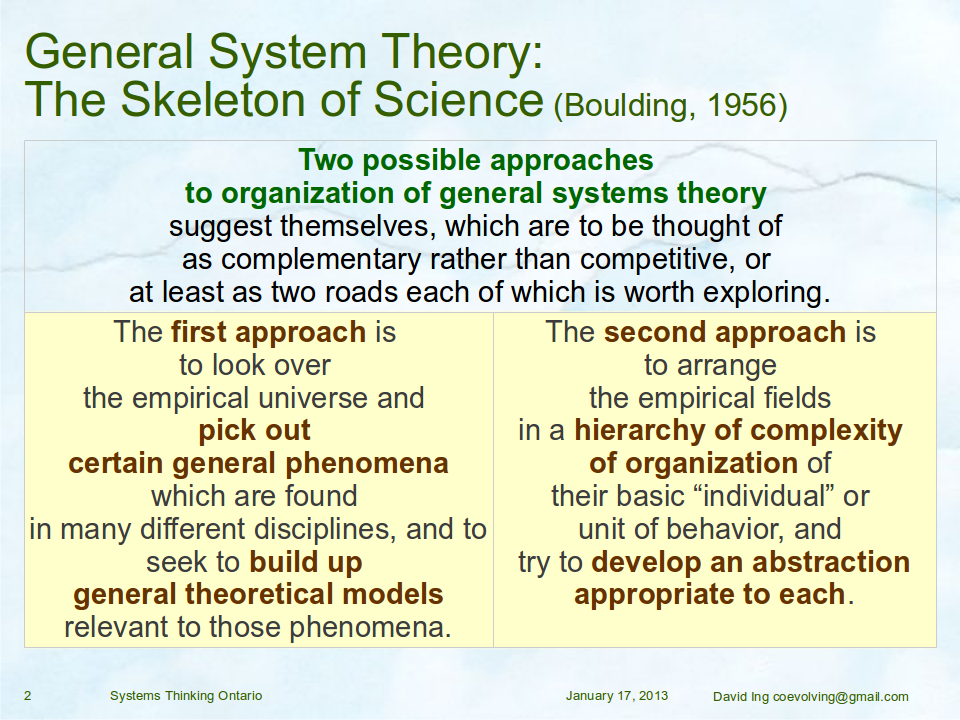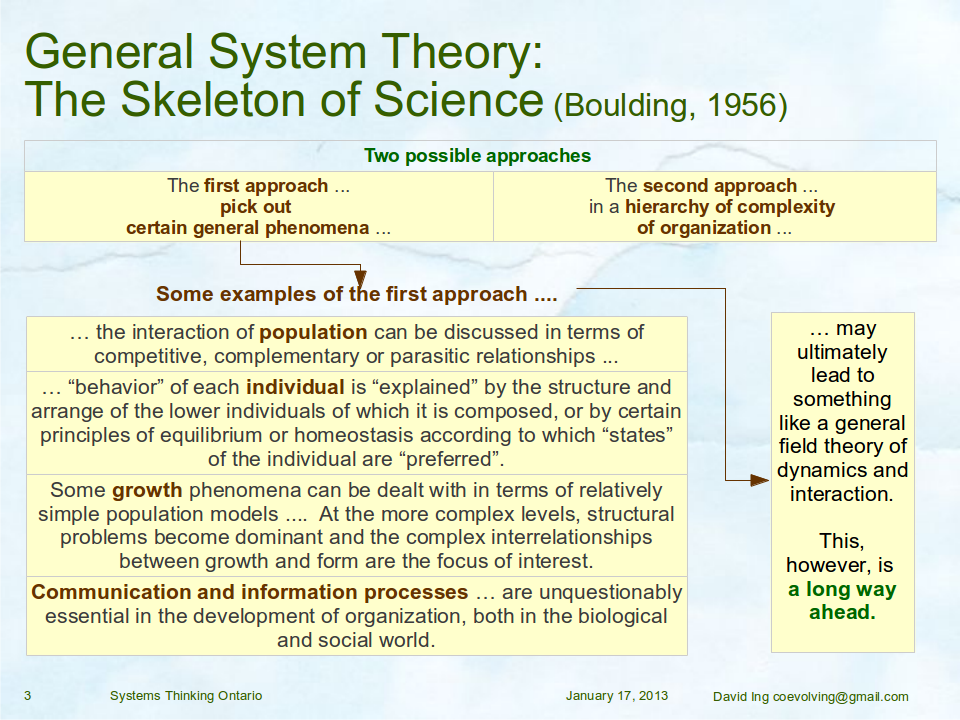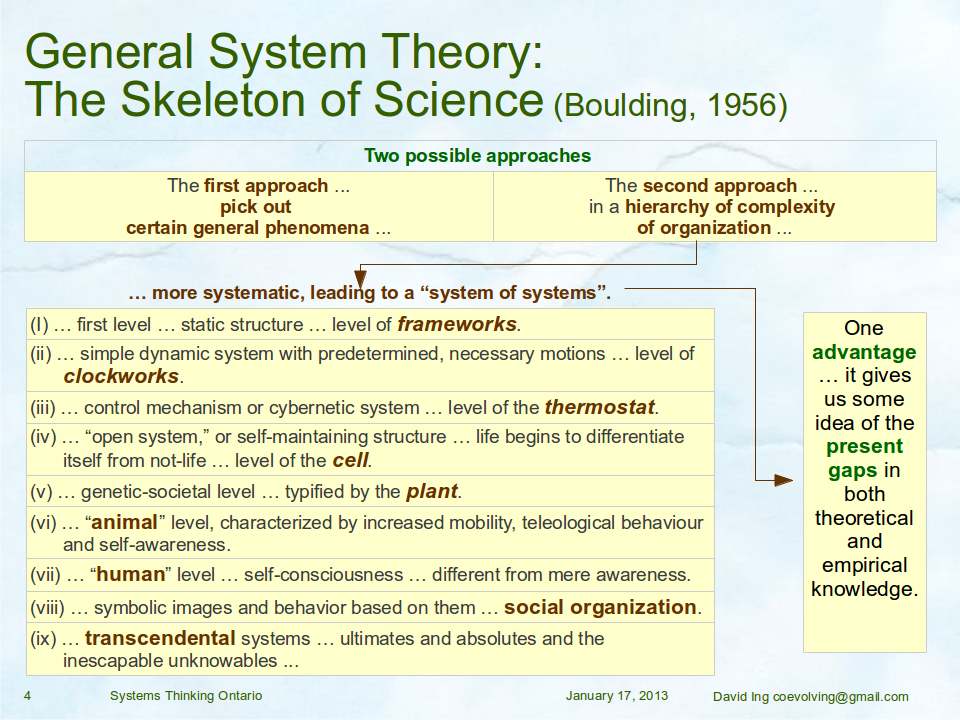The inaugural meeting of Systems Thinking Ontario convened in the Lambert Lounge at OCAD U. on the evening of January 17. The theme for the meeting was “Systems Thinking and Science”, with the focus question for the evening as: “Is the function of systems thinking to be (i) a science or (ii) a complement to science?”
The suggested pre-reading for the session was a rather old (1956) foundational article:
- Boulding, Kenneth E. 1956. “General Systems Theory — The Skeleton of Science.” Management Science 2 (3) (April): 197–208. http://jstor.org/stable/2627132 or doi:10.1287/mnsc.2.3.197 or find a cached version by searching on Google Scholar.
After a preamble on the role of Kenneth Boulding in the founding of the Society for General Systems Research (now known as the International Society for the Systems Sciences), some slides with the major points of the article were provided by attendees.
Towards a goal of organizing general systems theory, Boulding suggested two approaches: (i) looking empirically for general phenomena across disciplines, and building up general theoretical models, or (ii) arranging the empirical fields into a hierarchy of complexity of organization, while trying to develop an abstraction appropriate to each.
Examples of the first approach included the interactions of populations, behaviours of individuals, growth, and communication and information processes. Boulding saw that such an approach could lead to a general theory (of dynamics and interaction), but thought that this would be “a long way ahead”.
In the second approach, Boulding proposed a hierarchy of complexity — of (i) frameworks, (ii) clockworks, (iii) thermostat, (iv) cell, (v) plant, (vi) animal, (vii) human, (viii) social organization, and (ix) transcendental systems — that was more systematic. … Read more (in a new tab)
The inaugural meeting of Systems Thinking Ontario convened in the Lambert Lounge at OCAD U. on the evening of January 17. The theme for the meeting was “Systems Thinking and Science”, with the focus question for the evening as: “Is the function of systems thinking to be (i) a science or (ii) a complement to science?”
The suggested pre-reading for the session was a rather old (1956) foundational article:
- Boulding, Kenneth E. 1956. “General Systems Theory — The Skeleton of Science.” Management Science 2 (3) (April): 197–208. http://jstor.org/stable/2627132 or doi:10.1287/mnsc.2.3.197 or find a cached version by searching on Google Scholar.
After a preamble on the role of Kenneth Boulding in the founding of the Society for General Systems Research (now known as the International Society for the Systems Sciences), some slides with the major points of the article were provided by attendees.
Towards a goal of organizing general systems theory, Boulding suggested two approaches: (i) looking empirically for general phenomena across disciplines, and building up general theoretical models, or (ii) arranging the empirical fields into a hierarchy of complexity of organization, while trying to develop an abstraction appropriate to each.
Examples of the first approach included the interactions of populations, behaviours of individuals, growth, and communication and information processes. Boulding saw that such an approach could lead to a general theory (of dynamics and interaction), but thought that this would be “a long way ahead”.
In the second approach, Boulding proposed a hierarchy of complexity — of (i) frameworks, (ii) clockworks, (iii) thermostat, (iv) cell, (v) plant, (vi) animal, (vii) human, (viii) social organization, and (ix) transcendental systems — that was more systematic. … Read more (in a new tab)





